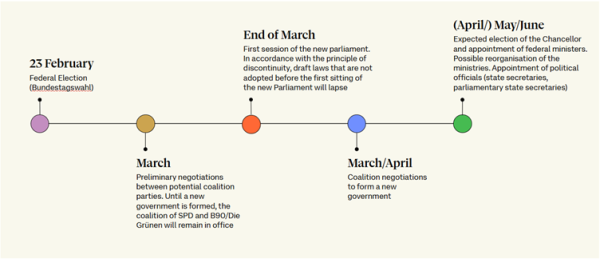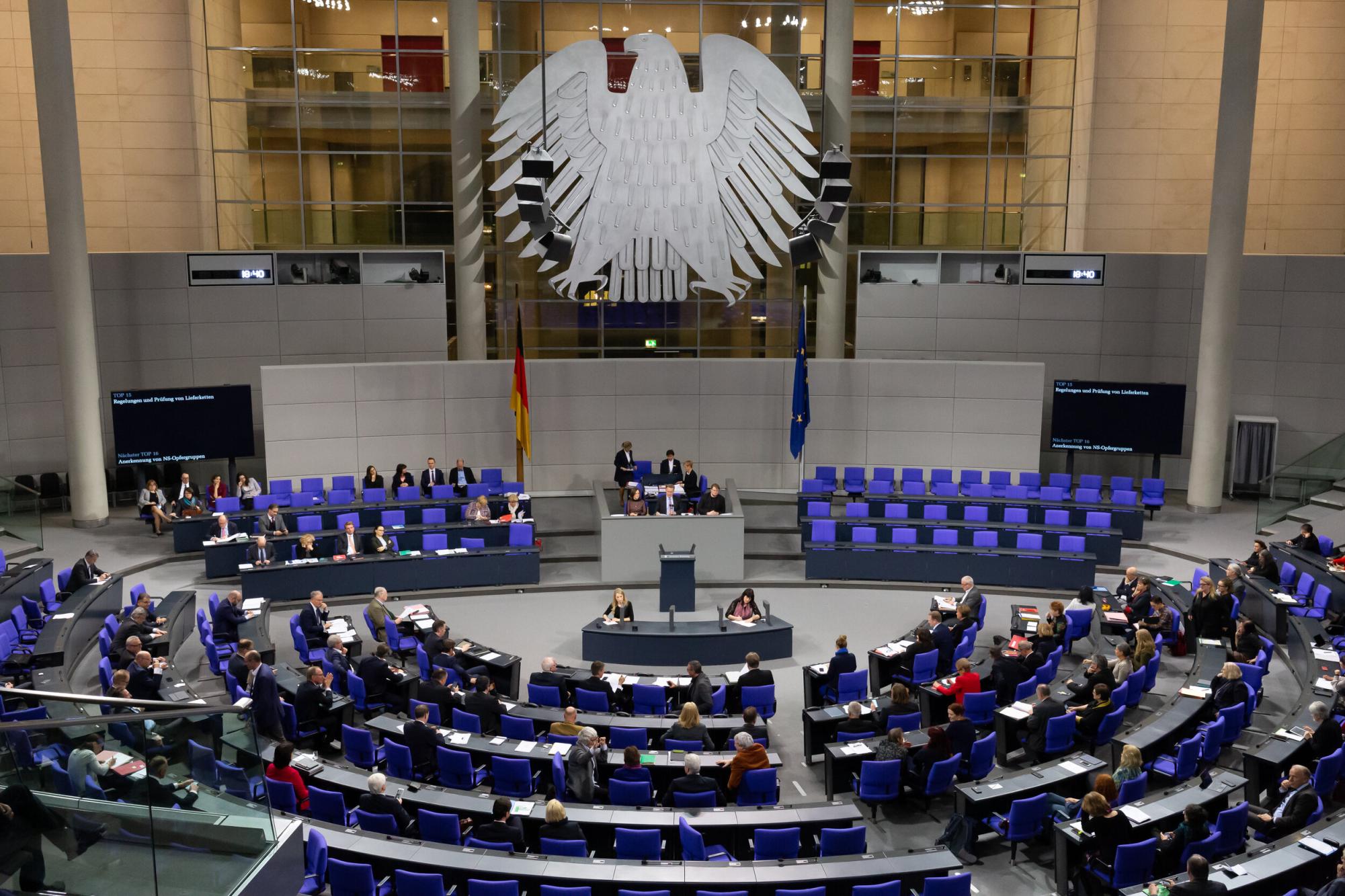On February 23, the 2025 German federal elections were held, marking the end of decades of stability with a result that revealed the shifting political tensions in Europe’s largest economy. The election results ultimately marked a large political upheaval, with the far-right Alternative fur Deutschland (AfD) party gaining 20.8% of the overall votes and obtaining 152 seats in Parliament, while the Sozialdemokratische Partei Deutschlands (SPD) faced electoral losses with only 16.4% of the vote share and gaining 120 seats. The Union party, the Christlich Demokratische Union Deutschlands (CDU), also secured 208 seats and gained 28.5% of votes. According to The Loop, these surges and falls by various parties may ultimately leave the German Parliament threatened with a “political earthquake” of conflict and change.
The conservative SPD party, led by Olaf Scholz, was notably experiencing population decline since 2021, when they formed the “traffic light” coalition with the progressive FDP party. After the formation of their coalition, the parties vowed to bring back political stability after 16 years of the former Chancellor’s policy of centrism. Although viewed as promising to many, critics of centrism—which include proponents of the SPD—argue that centrist ideology is overly idealistic and often unfeasible. Four years later, the alliance within the traffic light coalition has become fragmented.
The threats of the SPD’s degrading power were growing with the public’s increasing distrust in the party, especially after its efforts on energy reforms and nuclear power received backlash. Many critics argued that the plan would not only require funds beyond what is realistically possible, but that the SPD made such reforms merely as an attempt to raise the party’s reputation ahead of the elections.

Meanwhile, both the CDU and AfD parties capitalized on the other coalition’s misfires. CDU’s leader, Friedrich Merz, recently rebranded the party with moderate officials, whereas the party was led by strict conservatives before. Although Euronews states that Merz worked with Parliament and his party to pass effective policies regarding taxes and immigration, his recent views on the War on Ukraine—calling a pause on weapon aid to Ukraine—have alarmed citizens and other NATO allies. His view follows a similar viewpoint to U.S. President Donald Trump, whose decision to freeze aid for the war also led to increased fear among allied nations of NATO.
The biggest surprise from the election was the rising popularity of the AfD party leading up to the election. Despite being a far-right nationalistic party, the party became more accepted among citizens after “softening” its campaign by hosting fewer rallies and concentrating its campaign on social media platforms, as reported by YouGov. The AfD’s encouragement of welfare populism—“providing German jobs to German workers”—has particularly risen to popularity among anti-immigration supporters.
The next step for the German Parliament is to create potential coalition parties between the existing parties, which would unite to form the new government. Until then, the existing coalition of the SPD and Die Grunen (B90) parties will remain in office. According to FreshFields, these coalitions are most likely to be formed during mid-March. On March 25, the first session of the new parliament will be held, with the election of the Chancellor predicted to occur between late April and early June.
Whether the new government will succeed or fail is uncertain as of now. But the changes with the new Parliament are surely to bring change, either for better or worse.













